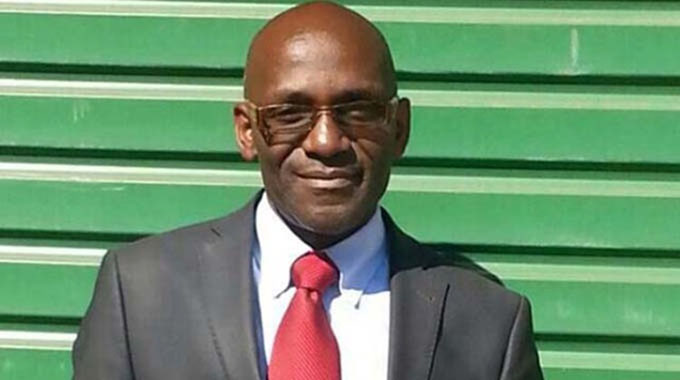Corruption: All hands must be on deck now

Willard T Mugadza Correspondent
There are myriad causes of corruption in Zimbabwe. What is clear is that, corruption has been tolerated over the years and there was no meaningful political will to effectively address the scourge.
Zimbabwe has consistently performed lowly on Transparency International rankings on corruption. The major concern is that for the past 10 years, the country has been ranked along poor performers like Afghanistan, Iraq, Sudan; countries that have had perennial internal strife, which was not the case in Zimbabwe.
After 1987, we enjoyed prolonged periods of peace, save for intermittent political unrest, which does not come any close to the internal conflicts in the countries identified. From a legal perspective, our anti-corruption legal framework is one of the weakest on the continent. Corruption evolves with time and technology and we have remained stuck with archaic anti-corruption legislation.
Further, Government has been found wanting in the employment of competent people in institutions that fight corruption.
Those employees that work in the criminal justice system tasked with dealing with corruption cases should have been sent for training and retraining continuously.
In the cases that have been reported, there is what seems to be political interference which resulted in the acquittal or non-pursuance of corruption cases, especially those involving higher offices.
What has been observed over the years is that there is shocking lack of appreciation by the general public on the effect of corruption. The corrosive nature of corruption in hospitals, medical supplies, infrastructure development, education, e.t.c has severely undermined service delivery.
The role of the private sector in fuelling corruption has been under reported over the years. The narrative expressed by the generality of the population is that, corruption takes place in Government. There is very little appreciation of the role of the private sector in fuelling corruption. Generally, people point to Government officials, almost ignoring that for Government officials to be corrupt, private citizens are equally guilty.
The recent fuel crisis saw a number of citizens bribing petrol attendants to fill up in jerry cans, to fill up above prescribed limits, jump queues — a reflection that corruption has become a culture in our country (systemic corruption), and has engulfed the moral fibre of our society.
Another example is the corruption that takes place at our border posts by some ZIMRA officials, immigration officials, the traffic police — the list is endless.
Another shocking and the most devastating corruption involves public procurement (the corruption that takes at the awarding of Government tenders at national level, local Government and at municipal level) and state-owned enterprises. It is not in dispute that from the time of Independence, Government tenders have been the most “rewarding” in terms of corruption. This due to the volumes of transactions as well as the high monetary value of transactions involved.
To make it worse, the legal framework that dealt with public procurement was extremely cumbersome (though it has slightly improved with the introduction of the new Procurement Act). However, despite all these challenges, the question is how do we get ourselves out of this trap?
Way forward in fighting corruption
It is important to note that there are other jurisdictions that have been in our situation or even worse, but have successfully navigated themselves out of corruption and have become leading anti-corruption hubs, attracting massive international investments.
One such example is Hong Kong. Before 1974, Hong Kong was the “capital city” of corruption. Corruption was rife to such an extent that in Hong Kong, they would say “corruption is a like a bus on the move — either you jump onto the bus or if you try to stop it — you will be run over”.
All corruption cases were handled by the Hong Kong Police, which was the heart of police corruption backed by the leaders of the day.
However, in 1974 after a thorough study of the pervasive nature of corruption in Hong Kong, it was decided that a truly independent unit in “word” and in “deed” be crated to fight corruption. The Independent Commission Against Corruption (ICAC) was birthed.
All cases of corruption were removed from Hong Kong Police to ICAC. Today, Hong Kong Police does not handle any case of corruption. ICAC has several powers and for the purpose of this discussion — it is important to note that ICAC has the legal powers to investigate, to arrest and to prosecute. ICAC has an estimated personnel of 1 500. In terms of its operations, one may mistake it for an intelligence unit. The efficiency and professionalism is outstanding.
ICAC enjoys 97 percent support of the Hong Kong population.
In Zimbabwe, we need a new anti-corruption strategy urgently. Our approach must be both short-term and long-term. I must hasten to say that it will not be possible to exhaust everything that we need to do in this article, however, the following may assist.
Zimbabwe Anti-Corruption Commission (ZACC)
ZACC needs a complete overhaul in terms of personnel and strategy as well as tactical operations. On this note, let me hasten to say that the dismissal or resignation of former commissioners led by Mr Job Wabhira in January was a step in the right direction. For example, ZACC does not have a functional website, yet the Government has been pushing the agenda of fighting corruption. Today, if any ordinary citizen wants to report corruption online, where do they go?
Further, ZACC does not have a published hotline number that is easily accessible to members of the public. This is unacceptable if we are to win the war against corruption. No one knows what ZACC’s mandate is or what they will be doing at any particular moment.
A quick glance at Botswana, Rwanda, Namibia and South Africa will reveal how easy it is to follow what these leading anti-corruption institutions are doing.
Their websites, annual reports, frequent media presence makes the public “fall in love” with their anti-corruption units.
I have heard ZACC giving an excuse of lack of funds, but how much does it cost to have a fully functional and well-updated website? These are some of the excuses that have contributed to poor rankings in the fight against corruption.
Anti-corruption strategy
Zimbabwe does not have any anti-corruption strategy that spells out clearly what needs to be done by the Executive, ministries, Local Government, municipalities, State-owned enterprises and the private sector. This should have been the work of ZACC, but alas, there is nothing in the offing.
It is pointless for ZACC to argue that we have an anti-corruption strategy, but it is shelved somewhere or that it is with some consultants somewhere. For example, Hong Kong’s ICAC and Botswana’s Directorate on Corruption and Economic Crime have clearly defined anti-corruption strategies. They produce annul reports detailing how they have fared in executing the anti-corruption strategy.
On December 9 of each year, it is the International Anti-Corruption Day.
ZACC has from its inception failed to take advantage of this day to bring awareness on issues of corruption and foster local and international networks with other anti-corruption units. Again, this is unacceptable.
Public procurement corruption
Public procurement corruption (corruption that takes place in the awarding of Government tenders) is at its highest in Zimbabwe. The Procurement Regulatory Authority of Zimbabwe (PRAZ) has so far failed to take a lead in this fight. The PRAZ website is user unfriendly. To make it worse, the website has no icon to report corruption.
The Procurement Act makes provision for the blacklisting or debarment of tender defaulters. There is nothing on the PRAZ website on active listing of blacklisted companies (individuals) as well as debarred tender defaulters (reasons and period of debarment).
Currently, suppliers are still driving from all over the country (others courier several documents) to PRAZ for registration. Why is this still necessary? Contact with PRAZ must be the last resort, as it is this contact with procurement officials that is a breeding ground for corruption.
Registration, queries and all other services with PRAZ must be done online. This must be rolled throughout the country as a matter of urgency.
ZACC has demonstrated that it has no capacity to deal with complicated procurement corruption. Under the envisaged Revised Procurement Regulations, PRAZ must be given full legal authority to deal with procurement corruption. This will allow PRAZ to develop its own personnel and systems.
Legal and institutional reforms
There is urgent need to effect legal and institutional reforms if the fight against corruption is to be won. For example, the case involving Prof Jonathan Moyo (Moyo v Sgt Chacha and Others — Reported judgment), which challenged the arresting powers of ZACC, exposed clearly that ZACC needs to be properly given legal powers to inter alia arrest and prosecute g with very minimum help from other institutions that enhance democracy.
In addition, there are several legal and institutional reforms that are necessary for PRAZ to be more effective in dealing with procurement corruption.
In the same context, Devolution will require further legal and institutional reforms as it can easily become another case of massive corruption.
For example, the introduction of Devolution Anti-Corruption Units will be necessary in all 10 provinces.
Zimbabwe can became the least corrupt country in the world in our lifetime. If we can take the above initial steps and many other suggestions from other experts, then surely we will attract the much-needed foreign direct investment. Hong Kong and Botswana have shown that it is possible.
The fight against corruption begins with me. How about you?
Dr Willard T Mugadza holds a Doctor of Laws (LLD). He is an expert in Public Procurement, Corruption, International Trade, Governance and Policy. He has done work for the World Bank Group, African Development Bank and Transparency International. He can be contacted him on [email protected] or +263774962411.
Dr Willard T Mugadza holds a Doctor of Laws (LLD). He is an expert in Public Procurement, Corruption, International Trade, Governance and Policy. He has done work for the World Bank Group, African Development Bank and Transparency International. He can be contacted on [email protected] or +263774962411.








Comments